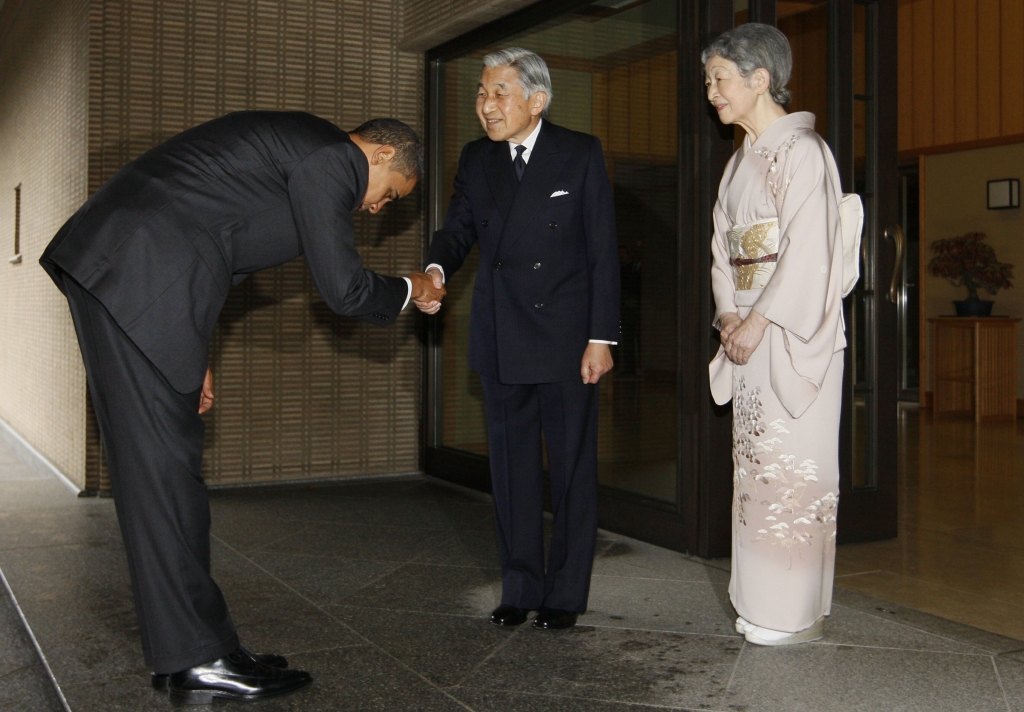-
Tips for becoming a good boxer - November 6, 2020
-
7 expert tips for making your hens night a memorable one - November 6, 2020
-
5 reasons to host your Christmas party on a cruise boat - November 6, 2020
-
What to do when you’re charged with a crime - November 6, 2020
-
Should you get one or multiple dogs? Here’s all you need to know - November 3, 2020
-
A Guide: How to Build Your Very Own Magic Mirror - February 14, 2019
-
Our Top Inspirational Baseball Stars - November 24, 2018
-
Five Tech Tools That Will Help You Turn Your Blog into a Business - November 24, 2018
-
How to Indulge on Vacation without Expanding Your Waist - November 9, 2018
-
5 Strategies for Businesses to Appeal to Today’s Increasingly Mobile-Crazed Customers - November 9, 2018
Kerry visits Hiroshima memorial 7 decades after A-bomb
Secretary of State John Kerry and foreign ministers from six other leading nations ended two days of talks Monday in Japan with what Kerry described as a “gut-wrenching” visit to the site of the world’s first atomic bombing.
Advertisement
While he is not the highest-ranking US official to have toured the museum and memorial park, a distinction that belongs to then-US Speaker of the House of Representatives Nancy Pelosi in 2008, Kerry is the senior-most executive branch official to visit. However, the Japanese are not expecting that the US leader will issue an apology for the two bombs dropped at Nagasaki and Hiroshima that resulted to an estimated 350,000 total deaths in a five year span. Many Americans believe the dropping of atomic bombs here on August 6, 1945, and on the Japanese city of Nagasaki three days later were justified and hastened the end of the war.
U.S. Secretary of State John Kerry has made a historic visit to the memorial for victims of the 1945 U.S. nuclear attack. Kerry said he hoped that one day the president of the USA would be among those who visited the city.
No serving United States president has visited the site, and it took 65 years for a U.S. ambassador to attend Hiroshima’s annual memorial service.
In a recent telephone interview, Clifton Truman Daniel said it would be “appropriate” for Obama to visit the cities to “honor the sacrifice” and “listen to those who lived through” the attacks “so that we know how disgusting that is and we remember and we don’t do it again”.
Pre-empting any question on the topic Kerry said that “any suggestions by any candidate for high public office that we should be building more weapons and giving them to a country like Korea or Japan are absurd on their face, and run counter to everything that every president, Republican or Democrat alike, has tried to achieve ever since World War II”.
Too often, US politicians talk about nuclear weapons as a child might a board game, parsing strategies and “delivery” systems and payloads.
In 2009, Obama opened his presidency with an idealistic speech in Prague declaring his commitment to creating “a world without nuclear weapons”. U.S. veterans’ groups are particularly sensitive to any indication that current strategic thinking about the U.S.-Japan alliance is overshadowing acknowledgements of Japan’s wartime atrocities.
“Progress on nuclear disarmament must be made in a way that reduces nuclear and security risks for ourselves, our allies and all humankind”, Kerry said in a written interview with the Hiroshima-based Chugoku Shimbun newspaper.
Yet he added that “the reason we came here was not to be stuck in the past”. The solemn backdrop to the summit gives G-7 leaders a platform to call for a world without nuclear weapons and highlight what they called a continued provocative action by the Democratic People’s Republic of Korea.
In a statement to Congress last month, Jan Thompson, president of the American Defenders of Bataan and Corregidor, said that Japan had been “backtracking” on the issue of abuses of US prisoners of war.
Most Japanese would respond warmly to a presidential visit to Hiroshima, even if it did not include an apology, said Tsuneo Watanabe, a senior fellow at the Tokyo Foundation, a research group.
Advertisement
A separate statement on maritime security did not mention China by name, but expressed concern about developments in the East China Sea, where China has claimed sovereignty over a group of uninhabited islands administered by Japan.





























